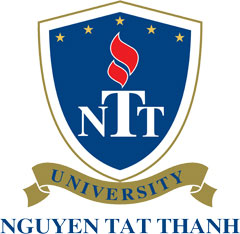KEYNOTE SPEECH 1

Evolving Critical Systems
Abstract
Increasingly software can be considered to be critical, due to the business or other functionality which it supports. Upgrades or changes to such software are expensive and risky, primarily because the software has not been designed and built for ease of change. Expertise, tools and methodologies which support the design and implementation of software systems that evolve without risk (of failure or loss of quality) are essential. We address a research agenda for building software in computer-based systems that (a) is highly reliable and (b) retains this reliability as it evolves, either over time or at run-time and illustrate this with a complex example from the domain of space exploration.
Short bio
Mike Hinchey is Director of Lero—the Irish Software Engineering Research Centre and Professor of Software Engineering at University of Limerick, Ireland. Prior to joining Lero, Professor Hinchey was Director of the NASA Software Engineering Laboratory; he continues to serve as a NASA Expert. In 2009 he was awarded NASA’s Kerley Award as Innovator of the Year. Hinchey holds a B.Sc. in Computer Systems from University of Limerick, an M.Sc. in Computation from University of Oxford and a PhD in Computer Science from University of Cambridge. The author/editor of more than 15 books and over 200 articles on various aspects of Software Engineering, at various times Hinchey previously held positions as Full Professor in Australia, UK, Sweden and USA. He is a Chartered Engineer, Chartered Engineering Professional, Chartered Mathematician and Charted Information Technology Professional, as well as a Fellow of the IET, British Computer Society and Irish Computer Society. He is Vice President of IFIP (International Federation for Information Processing) and Chair of the IFIP Technical Assembly.
KEYNOTE SPEECH 2

Adaptive complex systems: from formal approaches to bio-inspired approaches
Abstract
Today’s complex distributed systems must adapt to the unexpected execution conditions they face, in an autonomous way. This requires not only the adaptation feature at component level, but also the capability of adapting at the system level, modifying the collaboration pattern among components. In this talk I will introduce the scenario, motivate the need for collaboration pattern changes at runtime, and propose some approaches to enact them, ranging from one based on formal models to one bio-inspired.
Short bio
Giacomo Cabri is an associate professor in Computer Science at the University of Modena and Reggio Emilia since 2006. His current research interests include: distributed systems, complex agent systems, software engineering, mobile computing, and object-oriented programming. In these areas, he has published more than 140 publications, among which 28 in peer-reviewed international journals, and he has received 6 best paper awards. He was involved in different national and international research projects. He is in the program committee of several workshops and conferences and has been General Chair of IEEE WETICE 2004, of ACM PPPJ 2008, and of WETICE 2014. He is member of ACM and IEEE.
KEYNOTE SPEECH 3
Self-Adaptation in Collective Adaptive Systems
Abstract
An adaptive system is currently on spot: collective adaptive system (CAS), which is inspired by the socio-technical systems. CASs are characterized by a high degree of adaptation, giving them resilience in the face of perturbations. In CASs, highest degree of adaptation is self-adaptation. The overarching goal of CAS is to realize systems that are tightly entangled with humans and social structures. Meeting this grand challenge of CASs requires a fundamental approach to the notion of self-adaptation. To this end, taking advantage of the categorical approach we establish, in this talk, a firm formal basis for modeling self-adaptation in CASs.
Short bio
Dr. Phan Cong Vinh received a PhD in computer science from London South Bank University (LSBU) in the United Kingdom. He finished his PhD dissertation with the title "Formal Aspects of Dynamic Reconfigurability in Reconfigurable Computing Systems" supervised by Prof. Jonathan P. Bowen at LSBU where he was affiliated with the Centre for Applied Formal Methods (CAFM) at the Institute for Computing Research (ICR). At present, he is a member of Nguyen Tat Thanh University (NTTU) to take on the responsibility of senior research scientist in computing. He has been author or co-author of many refereed contributions published in prestigious journals, conference proceedings or edited books. He is the author of a book on computing science titled "Dynamic Reconfigurability in Reconfigurable Computing Systems: Formal Aspects of Computing"(VDM 2009); editor of two titles, "Autonomic Networking-on-Chip: Bio-Inspired Specification, Development and Verification" (CRC Press, 2012) and "Formal and Practical Aspects of Autonomic Computing and Networking: Specification, Development and Verification" (IGI Global, 2011); editor of two Special Issues, "Context-Awareness of Mobile Systems: Models, Algorithms and Applications" (Springer MONET (SCIE), 2013) and "Advances in Autonomic Computing: Formal Engineering Methods for Nature-Inspired Computing Systems" (Springer TCS, 2012). He has served on many conference program committees and has been general or technical (co)chair and (co)organizer of several series of international conferences such as ICCASA and ICTCC. His research interests center on all aspects of formal methods, autonomic computing, collective adaptive computing and applied categorical structures in computer science.







































